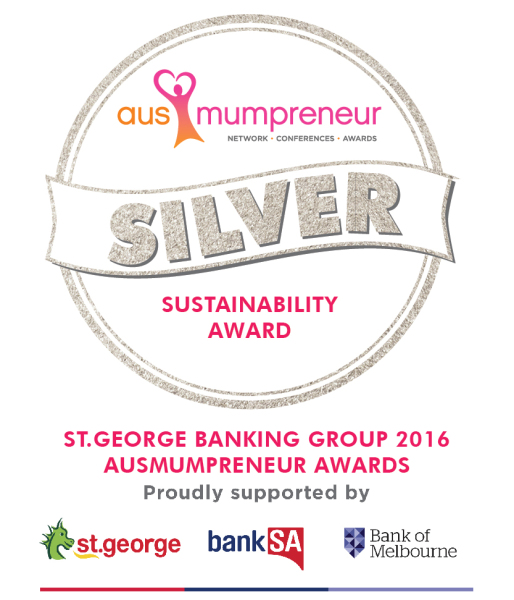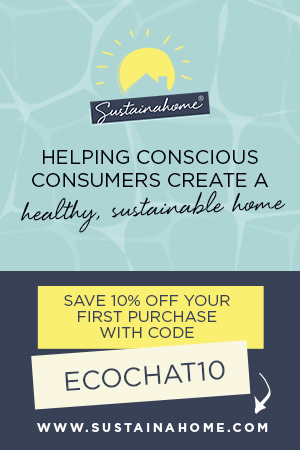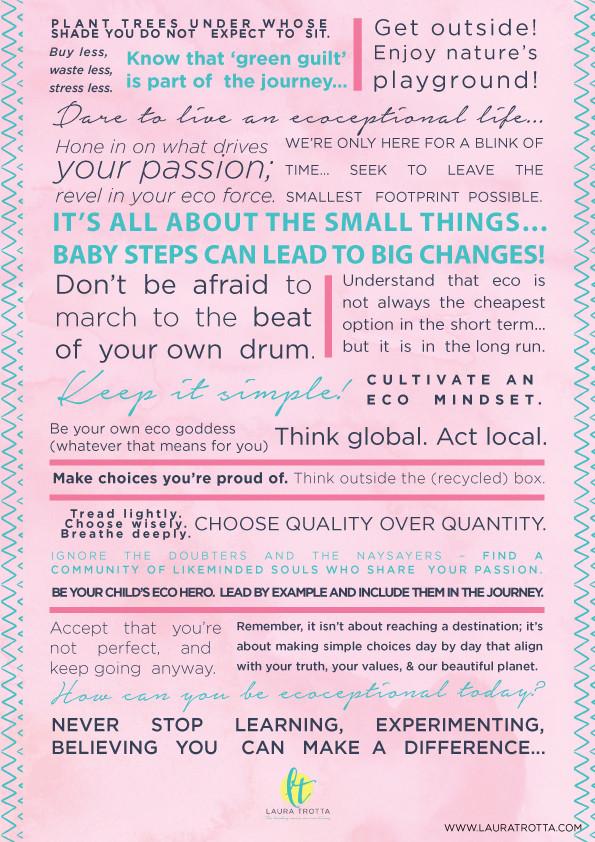Are you curious about what the Council Climate Emergency Declaration movement entails? Want to understand what difference it actually makes to the climate crisis?
Keen to know how you can get your local council to lead in climate action?
If that’s you, you’re in the right place!
In this episode of Eco Chat I’m joined by Climate Reality Leader and elected member of the Gawler Town Council, Ian Tooley.
Ian was instrumental in the process of Gawler Town Council becoming one of the first council’s in Australia to declare a climate emergency and shares his experience of the process.
Podcast: Play In New Window
Subscribe in iTunes | Stitcher (also in Spotify)
Resources:
SustainabilityB42L8 Facebook Page
Gawler Town Council Elected Members
Self Sufficiency in the Suburbs Membership Program
what lead you to decide to train as a Climate Reality Leader?
I’ve wondered about that too. But I think it dates back to the 70’s when I was in high school. And it was the era of the moratoriums for the Vietnam war, but also there was also a real consciousness about population growth and pollution. I can remember hearing for the first time people like David Suzuki, and reading books by Dr. Paul Earley.
And when I got into uni, geography is one of the subjects that I studied. There was an environmental awareness component to that and I think that’s where seeds were sown. I joined as a Climate Reality leader in 2007. And I can remember the moment when I decided to apply clearly. I was at my desk as a school principal with a governing council meeting set to begin at 7pm. It was 6pm and I was enjoying some downtime, and I read an article in the local paper inviting people to be trained by Al Gore. I was torn between getting online and doing an application and playing a game of solitaire on the computer to relax. I decided to give this application a go.
I’d just read a book by Steven Sterling called Education Sustainability, where he makes a case for why school should embrace sustainability and teach it so it becomes embedded as a value in students and that resonated with me. So I did the application and was fortunate enough to be selected as one of 300 at that time for the first training outside of the USA, in Melbourne in 2007. In short, that’s how that came about. And since I did that training it just reinforced everything that was sitting there in my belief system about caring for the environment, and the place education has in there. It’s gone on from there.
How has your life changed since you became a Climate Reality Leader?
I think it emboldened me to step more into activism. It certainly convinced me that education place critical role. And I then began to become very active in my own school, in my education circles for how we use the curriculum to educate kids about sustainability. I became aware that sustainability is what I would call part of the value system. My argument became that if we could educate students to come out of schools with a set of values, accepting that most values are grown – the seeds are sown in the early years, the parents are the greatest educators of kids, schools’ job is to assist and take that further. But values are not taught by a single lesson. Values are built up through immersions. Typical one where you want to teach your child to be honest. It’s never a single lesson, it’s a teachable moment that’s continually singing the same song and eventually, it becomes embedded as a value in children. In the same way, if you want your children to not be racist, again it’s not a single lesson. It’s how they’re immersed in the culture of that home, the language that you used, the jokes you do or tell, the tv you or don’t watch, the commentary you make when something horrendous comes up. All of that is what builds up the value system in the child. At some point, that child becomes hard-wired towards not being a racist, or to become a racist. What happens after that strengthens or weakens that position.
In the same way, I argue with sustainability. Most of us believe in education sustainability believe the same thing. If we can develop a value system in our children and in our students, so they graduate from school with sustainability as one of their key values, then we don’t have to retrofit them as adults. They will be the ones who naturally are wanting to live a sustainable way. Use less, recycle more, get our fossil fuels conserved.
I began to be strongly involved in that movement in schools. When the Australian curriculum came out, which had sustainability as one of its cross-curriculum priorities, I, as a principal, took great liaisons to see how we can embed that across the curriculum. That’s not easy work. You have to work with teachers that have a very busy job. But when you stop and show teachers how they could embed the teachings of sustainability into any subject, teachers found it easier to embrace and use it. That was one of the more profound outcomes for me from that first training. Then in addition to that, I got involved in work as a lobbyist. Through Climate reality, I had the privilege of going to Canberra a couple of occasions to lobby politicians recognizing that you get far more traction in these areas when you get government policy in place. We as individuals must continue to an awful lot as individuals. But it’s when a government makes big policy changes – carbon taxes, declaring it will get plastic out of the stream; declaring we diverse from fossil fuels. That’s when you get significant big movements. It emboldened me to be more active as a lobbyist. And since then, whenever the opportunity when Al Gore’s back in Australia, in 2007 we can get up and personal with Al. But since then the numbers have made that very difficult. So as you saw in Brisbane recently, the numbers were at 800 from the Asia Pacific. It’s not quite as intermittent. However, the message is still incredibly powerful. Brisbane for me was my fourth training now. In that one, I was a mentor. I was a mentor in 2014 as well. Those trainings, I learned a lot more. And as you probably have realised, I’ve now retired from full-time work as principal. And I’ve now got my self elected as an elected member on the Gore account. So I’m using that in good effect of lobby and influence local government to get involved in the action on climate change.
Why are Councils around Australia declaring a climate emergency?
I think the answer lies in the fact that we, me and many others – millions around the world, have been pushing for action on climate change and finding that it’s become so politicised, and it shouldn’t, but it has. Now it’s left versus right. It’s lobbyist so involved with big money that they’re affecting how politicians act that I think this has grown out the frustrations of people to say that We’re sick of this. We’ve asked, we’ve been nice, we’ve cried. You’re not listening – big governments are not listening. Government, as I said before, has not arrived in taking big bold move. They’re not doing it. So I think these movements have grown. There are two parts of movements that stand out to me. One is the likes of the Extinction Rebellion movement and any other variations of that where people are taking it to the streets with non-violent protests in order to get attention, in order to get the message across. We’ve only seen that from Greenpeace and Sea Shepherd. Those movements have always said – Look, we’ve tried being nice, we’ve tried asking. We are now gonna get in your face. We are gonna get attention. So Extinction Rebellion and other groups like that. There’s the student climate strikes – another one. And their purposes to say – We’ve had enough. We can’t let you longer. There’s not enough time left. We’re gonna force you by taking action. In the same way, the climate emergency declaration movement has grown from a typical local government and now moving into the non-government sectors as well with school and businesses declaring climate emergencies. But that movement is trying to say – Look, local government is the most accessible government. that’s where people can be very much in touch with the decisions and the people of local government. If enough local governments declare a climate emergency, it’s enough for local government associations declare climate emergencies. Then, that will force the next levels – the state and federal governments. So the hope is to build such critical momentum and such a head of steam that those larger governments will just have to listen. So that’s where I think those movements have grown. Certainly, the uptake in the local government sectors being huge is growing and adding every single day. In Australia now, you can look on the CEDAMIA website for the exact numbers. We’ve had from Vancouver, to London, to Sydney, to Melbourne – big cities declaring climate emergencies through the many local councils. Gawler is one of the three in South Australia. The local government association of Victoria and Western Australia have declared as the big bodies climate emergencies. And that’s about sending that strong message that we believe the science, we believe the evidence, we’re running out of time, and we need to act.
The second part of it is then developing at local level what’s called a climate emergency action plan. And as timing would have it Laura, tonight is the very first meeting of the Gawler Climate Emergency action plan working group. So having declared the emergency, we’ve gone through our community, we listened to them in declaring the emergency, we’ve now embraced it with the community. We’ve got a community council partnership where we will meet tonight to begin the process of developing the action plan for our town. The purpose of the action plan, if you have to bring it down to one single statement, is to, at the local level, break down your carbon footprint. Significantly cut your carbon emissions. Hopefully, we are looking at things like the transition to renewable energy for our town. And as a local council, embracing that. Diverting from fossil fuels and promoting the uptake of solar in businesses and the community. Looking at our own civil works as a town, preventing from road sealing up to how we do or don’t use concrete. Can we use products, use them in a way which significantly cut the carbon footprint. When we are looking at the streets, can we be transitioning to electric vehicles? That for me is the mitigation side. On the adaptation side of climate change, we know that there’s enough carbon in the system now to bring us some horrendous consequences. Heatwaves and the like. It’s about how do we best keep vulnerable in our society and community in Gawler State. Everything from safe shelters and sufficient water when we have those massive heatwaves, to protection against bush fires and the like. We’ve had some pretty devastating fires right on the fringe of our town which have caused loss of life and massive loss of property. The plans look about mitigation and adaptation as well.
What are the benefits of declaring a climate emergency? What are the risks?
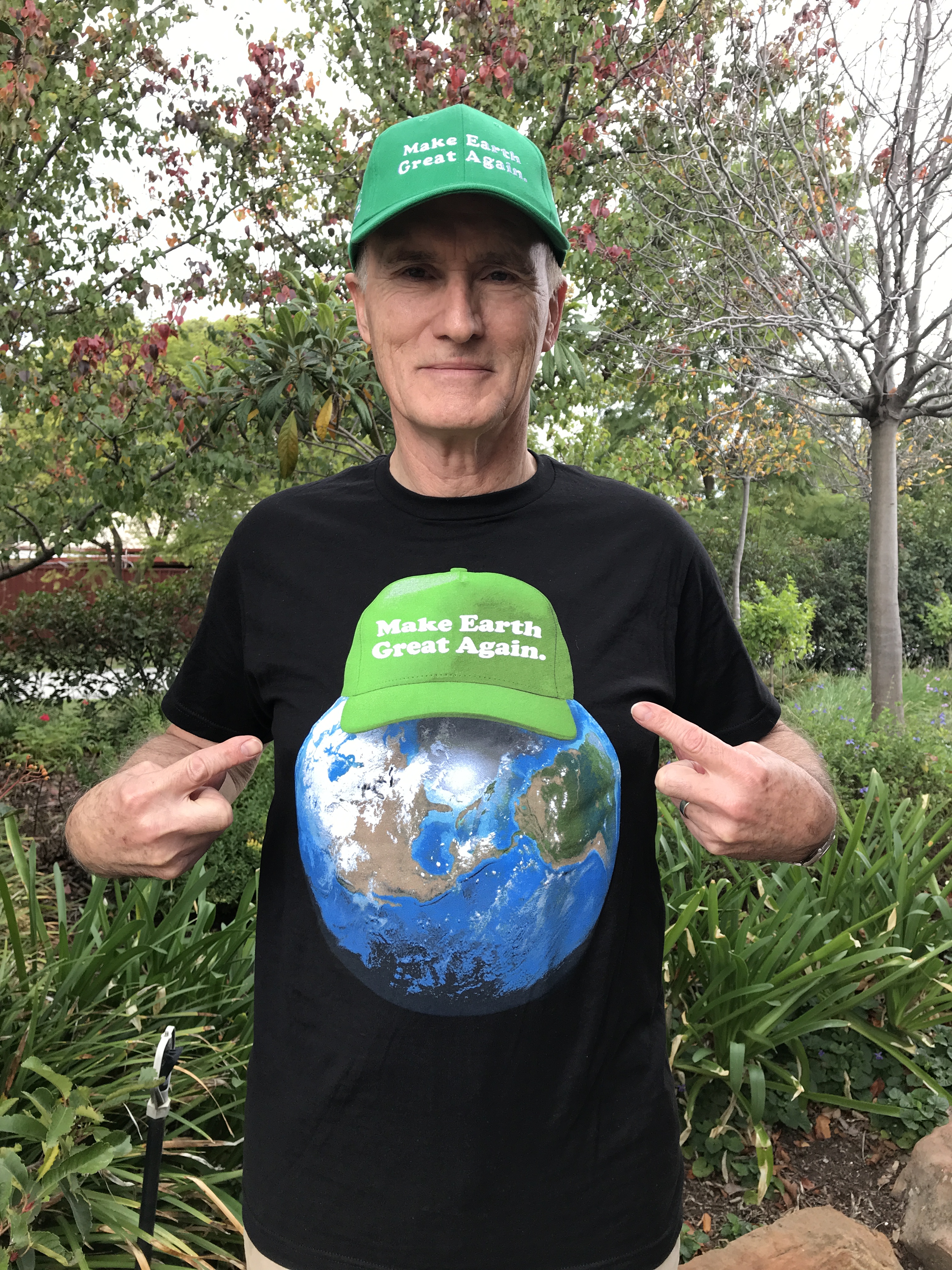
It’s not about telling about people which party to vote for. Tell people to look at the party that is going to do the best job for them and their environment. It’s just not money. Money, of course, is important, but there are no jobs on a dead planet. There is no economy on a dead planet. So we need to look at the long term future and really think about how we vote, and think about how we act as individuals.
Can you walk us through the process of what’s involved for a Council to declare a climate emergency? What process did you follow at Gawler?
It can be very simple. A motion is put to the council that says something simple like Gawler Council recognises that there is a climate emergency, and declares there’s a climate emergency. Gawler council accepts and notes the information presented by the IPCC and United Nations in their 2018 reports. Gawler accepts that it is vulnerable to extreme weather events, etc.. You have a very simple but multi-point statement like that. The final point should be something like Gawler commits to developing a climate emergency action plan, in partnership with the community, in order to significantly reduce our carbon footprint, and to work to protect our local community. That sort of wording can be obtained very simply from the likes of myself, from a council website, from the CEDAMIA website where there’s exemplars. The challenges, whether you’ve got the numbers in the local government is, like any government it works on motions and voting. We need to have a majority of the councillors vote. What we did as a strategy, Gawler does not devoid of policy on climate change but they were typical. Recognising but not doing much. We’ve had a history of being pro-environmental. That was something I built on. And to win the day, we campaigned through the media, social media, and local groups like Transition Gawler – which is part of the transition movement worldwide. And we marketed and advertised, and we let them know we wanted the community to be involved. I wrote letters to the editor. We got articles. And then on the night, we got people to coach the gallery. This is the bit that I think is where local government has it over the other levels. Almost every local government council meeting has the opportunity for the public to come in and speak at an open forum at the beginning of that meeting. And often people don’t realise that and don’t use it strategically. But we use this strategically. We had a number of speakers who came in the open forum section. They let loose with why Gawler – tonight, we see you got this motion. We as a community demand you elected members, both in favor of etc..and they showed the gallery, massive members overflowing holding up banners. The one actually came into the debate in the chambers, we’ve got the numbers, we have a majority get across the line. That wasn’t unanimous. I wish it had been. Sadly, we had, like all councils do, we have some people who are sceptical or they’re deniers. They’re just local members who’ve been elected. And they’re not climate scientists. You have to win enough members on the council to vote. We didn’t need to do it, but my advice to other people who are looking to influence the council members is they have to answer you if you ring them, lobby them, write them, email them, tell them that you want them to vote for such a declaration. Get to each council meeting in numbers. Politely, respectfully but firmly, speak to them about the need that you want your council to declare a climate emergency. Through that sort of lobbying and advocacy, you will put pressure on your local members to listen to you. They’re there, not to represent themselves. They’re there to represent a community. They should then vote accordingly. That’s how you have to work in a democratic process. You have to get firm, get active, be advocates.
What actual change does declaring a climate emergency make on the ground in the fight for climate action?
Gawler has been listening to these things. We’d already moved motions. We’ve done the costing on putting large scale solar on our assets. That is now happened. That was in train before we declared the emergency. But what happened since is we have run and opened community sessions. We ran Bill McKibben’s 350.org film as a community event. And we have several hundred people from the community to listen to that case. I’ve given a public presentation of the Al Gore climate reality presentation. I gave that in a civic centre to the same group of people. And we’d be very public in developing the brief for our climate emergency action plan and inviting our community to join us. And, that has led point where tonight, we are meeting now as a first time with that group to begin that task of developing the action plan. Hopefully, we will engage some real quality consultants who are specialists in the field who will help us to identify particularly locally for Gawler where are our hotspots in terms of urban design. Is it development planning? Is it the way we are using our resources? Where can we drive down our carbon footprint? And that have become the basis of building our plan. It should become an overarching policy, through which relents, through which we look at all other decisions. It’s not a dead policy, it’s a living policy that directs the decision making in the council so that whatever we do is helping, not hindering the task of getting the carbon footprint down.
Can you walk us through the process of what’s involved for a Council to declare a climate emergency? What process did you follow at Gawler?
It can be very simple. A motion is put to the council that says something simple like Gawler Council recognises that there is a climate emergency, and declares there’s a climate emergency. Gawler council accepts and notes the information presented by the IPCC and United Nations in their 2018 reports. Gawler accepts that it is vulnerable to extreme weather events, etc.. You have a very simple but multi-point statement like that. The final point should be something like Gawler commits to developing a climate emergency action plan, in partnership with the community, in order to significantly reduce our carbon footprint, and to work to protect our local community. That sort of wording can be obtained very simply from the likes of myself, from a council website, from the CEDAMIA website where there’s exemplars. The challenges, whether you’ve got the numbers in the local government is, like any government it works on motions and voting. We need to have a majority of the councillors vote. What we did as a strategy, Gawler does not devoid of policy on climate change but they were typical. Recognising but not doing much. We’ve had a history of being pro-environmental. That was something I built on. And to win the day, we campaigned through the media, social media, and local groups like Transition Gawler – which is part of the transition movement worldwide. And we marketed and advertised, and we let them know we wanted the community to be involved. I wrote letters to the editor. We got articles. And then on the night, we got people to coach the gallery. This is the bit that I think is where local government has it over the other levels. Almost every local government council meeting has the opportunity for the public to come in and speak at an open forum at the beginning of that meeting. And often people don’t realise that and don’t use it strategically. But we use this strategically. We had a number of speakers who came in the open forum section. They let loose with why Gawler – tonight, we see you got this motion. We as a community demand you elected members, both in favor of etc..and they showed the gallery, massive members overflowing holding up banners. The one actually came into the debate in the chambers, we’ve got the numbers, we have a majority get across the line. That wasn’t unanimous. I wish it had been. Sadly, we’ve had, like all councils do, we have some people who are sceptical or denies. They’re just local members who’ve been elected. And they’re not climate scientists. You have to win enough members on the council to vote. We didn’t need to do it, but my advice to other people who are looking to influence the council members is they have to answer you if you ring them, lobby them, write them, email them, tell them that you want them to vote for such a declaration. Get to each council meeting in numbers. Politely, respectfully but firmly, speak to them about the need that you want your council to declare a climate emergency. Through that sort of lobbying and advocacy, you will put pressure on your local members to listen to you. They’re there, not to represent themselves. They’re there to represent a community. They should then vote accordingly. That’s how you have to work in a democratic process. You have to get firm, get active, be advocates.
What advice do you have for councils who are considering going down this route and are weighing up all the pros and cons?
I think there’s a growing collaboration between councils. Certainly, councils are sharing. We’ve been contacted by the councils. We are sharing all the wording, all the resources. The first council in Australia, Darebin, they’re a lot further down the track. They have been sharing all their documents and policies. So there’s a real openness of those of us that are in the space to share, to help others in developing their policies and getting to the point where they declare the climate emergency. We definitely want to collaborate. There’s no benefit in doing this in isolation. This is something that hopefully, as we develop our plan, others would embrace it. On our doorstep we’ve got Light council which has declared an emergency. Barossa Council has a grinding awareness of the need but hasn’t actually declared an emergency yet. Salisbury Council has been investing heavily in solar renewable and water recycling for years. So you would be wonderful for councils to get together and share resources and approaches, then you’d get that multiplier effect. We’re definitely open and want to go that way.
I mentioned that Sydney, Melbourne and London have declared climate emergencies. We spent some time in Seattle and saw an article that the mayor of Seattle is committing to phase-out all oil and gas burning heaters and invest in electrical heaters for the community. Now that’s a city of 3.6 million people, three times the size of Adelaide. I researched what that statement led to, I went back to the Seattle declaration of 2018 – the climate emergency action plan. And in there, again, the overarching thing was they must drive down the carbon footprint. But then what they’ve done is they’ve looked to what their local issues are. And one of them was this recognition that the burning of oil and burning of gas as a heating source was a relatively easy cherry to pick and to change. They did all the math on how much CO2 you take out of the system by converting to electrical. And the electrical sources are gonna be increasingly renewable. They put the money in to support that transition. The other thing they’re doing, there’s a suburb of Seattle called Bellview. It’s not really a suburb, it’s a second mirror city. It was built by Microsoft probably 15 years ago. It probably houses 1.2 million people. It’s its own city but it’s in the metroplex of Seattle. When they designed that and laid that out, they laid it out so that light rail could easily be overlaid.
Only now, the city of Seattle has declared that they are rolling out light rail. And again their motivation is to take people off the six lane highways, and get people using rapid public transit. That’s another of its platforms in their emergency plan and we physically have seen that being rolled out. It is a massive civil work, massive infrastructure, but bit easy to layout in Bellview. The challenge there now are building tunnels and adding it to floating bridges as the go across Washington. That’s where this will is coming from. So they’re generating jobs, but the endgame is they are moving to a more sustainable way of living, in order that we can have a future for our kids.
Do you have any advice for our listeners, who are concerned about the climate crisis but unsure of what they can do to help?
Sure. Look, it’s very easy. What we’ve discussed about now, some of your listeners can look at that and feel totally despondent and think there is no hope. I don’t let this neutralize me. I don’t sit rocking in the corner. I’m getting angry and I’m getting active. But I also enjoy life and living, and I’m getting numb with it. But you can act, and you need to act. The things I would say is there is hope. If we act in a drastic way, we can not only level up but we can live a future that our kids and grandkids can enjoy. And we do not want to be remembered as the generation that used it all, because we could, and left nothing for the future generations. I saw the most stunning sustainable logging in the north-west pacific area. I’m talking Oregon. I’m talking California. I’m taking Washington State, Alaska, where logging was involved in a sustainable way, you almost didn’t notice it. There was not this mass clear felling. And that part of America is rich in biodiversity. The forest, the wildlife that is still there was just stunning. But we saw a few bad examples where they haven’t picked up the pieces because they managed to forest badly. But we saw more good examples of where they selectively fell and they re-place in a sustainable way. We’ve seen this with the fishery, the halibut fishery in Alaska collapse because of ignorant over-fishing. It’s now back as a sustainable fishery. We’ve seen the same thing with the salmon. We’ve seen how they now have hatcheries and where they put these incredible fish ladders in to allow the salmon to get back to their spawning zones. When we went fishing a 160km north of Anchorage in the wilderness to a wild river to go fishing. We did pure catch and release. And I was just surprised about the environmental consciousness of the people we’ve met out there. They’ve seen it firsthand. We can learn from our mistakes, there’s no doubt about it. But the time is running out if we don’t act.
So what will you do as an individualist? As an individual person, we should all be looking to walk the talk. I, for example, invested in solar. I’ve tried to get myself these self-sufficient good solar. I’ve gone to a very water efficient garden and I’ve got a half an acre.
We look to discerningly when we buy products so that we reduced the amount of plastic that we are consuming. We recycle. All of those things massively important.
The next thing is: use your vote. Realize that, as I’ve said before, we only get significant uptake when government acts. We gonna tell our politicians that we demand action. We want a carbon tax. We want a carbon reduction. We want our politicians to invest in renewables, scrub the need for fossil fuels. We don’t want to ruin the livelihoods of the people who live in the forestry area or the people living coal areas. We understand generations of work in that area. But we have to understand that people will vote if they think they are simply gonna lose their jobs. We’ve got to provide the alternative new economy. We’ve gonna build a renewable economy. An economy that can and will be sustainable. So we gonna bring jobs to those people, as jobs in coal decline, they can be moving into those jobs in the renewable sector which is massive. There’s a massive economy in there. As an individual, where would you put your vote? I would say initially, get on to your local council. Get active at your local level. Demand that your council, not only declares an emergency in recognition of the crisis, but they’d begin to act on a climate emergency action plan which will make a difference in your local community. And that will add to all those other councils that are doing it. And when it comes to those votes for the state government and federal governments, lobby your local politician. Demand that you’re gonna be looking for climate in their mix. You want them to be a pro-climate activist government. It’s not about telling about people which party to vote for. Tell people to look at the pay that is gonna do the best job for them and their environment. It’s just not money. Money, of course, is important, but there’s no job on a dead planet. There’s no economy on a dead planet. So we gotta look at that long term future and really think about how we vote, and think about how we act as individuals.
Like this post? You’ll also love:
Ep 67 – Climate Change – What It Is and Why We Need to Do Something About It
Ep 87 – What is the Paris Agreement and Why Did Trump Withdraw?
Ep 135 – What You Can Do To Combat Climate Change
Resources:
SustainabilityB42L8 Facebook Page
Gawler Town Council Elected Members
Self Sufficiency in the Suburbs Membership Program
- Sustainable Home Design- factors to consider to maximise sustainability - July 28, 2022
- Advantage and Disadvantages of Tiny Houses - May 31, 2022
- How School Strike 4 Climate is Empowering Youth to Fight for Their Future - May 1, 2022

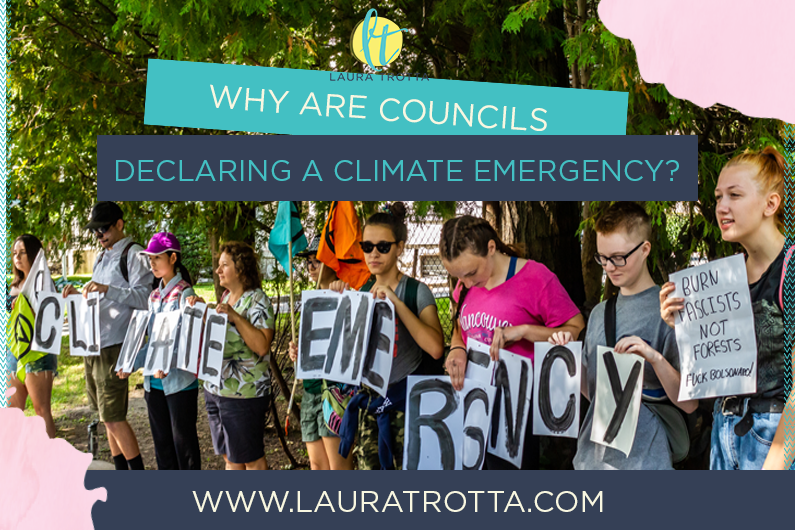
 Laura Trotta is one of Australia’s leading home sustainability experts. She has a Bachelor of Environmental Engineering, a Masters of Science (in Environmental Chemistry) and spent 11 years working as an environmental professional before creating her first online eco business, Sustainababy, in 2009. She has won numerous regional and national awards for her fresh and inspiring take on living an ‘ecoceptional’ life (including most recently winning the Brand South Australia Flinders University Education Award (2015) for the north-west region in SA and silver in the Eco-friendly category of the 2015 Ausmumpreneur Awards). With a regular segment on ABC Radio and with her work featured in publications like Nurture Parenting and My Child Magazine, Laura is an eco thought leader who’s not afraid to challenge the status quo. A passionate believer in addressing the small things to achieve big change, and protecting the planet in practical ways, Laura lives with her husband and two sons in outback South Australia.
Laura Trotta is one of Australia’s leading home sustainability experts. She has a Bachelor of Environmental Engineering, a Masters of Science (in Environmental Chemistry) and spent 11 years working as an environmental professional before creating her first online eco business, Sustainababy, in 2009. She has won numerous regional and national awards for her fresh and inspiring take on living an ‘ecoceptional’ life (including most recently winning the Brand South Australia Flinders University Education Award (2015) for the north-west region in SA and silver in the Eco-friendly category of the 2015 Ausmumpreneur Awards). With a regular segment on ABC Radio and with her work featured in publications like Nurture Parenting and My Child Magazine, Laura is an eco thought leader who’s not afraid to challenge the status quo. A passionate believer in addressing the small things to achieve big change, and protecting the planet in practical ways, Laura lives with her husband and two sons in outback South Australia. 